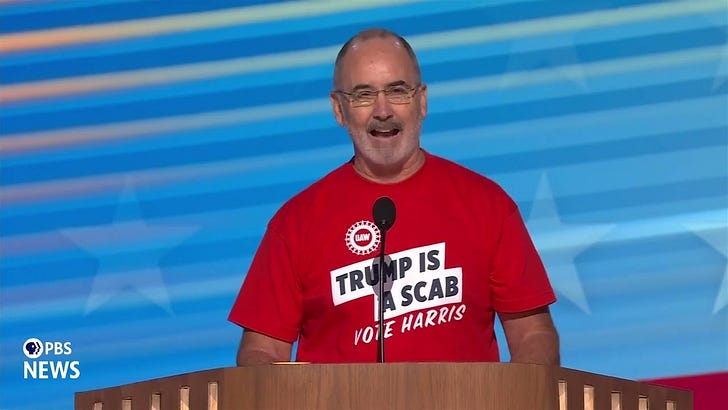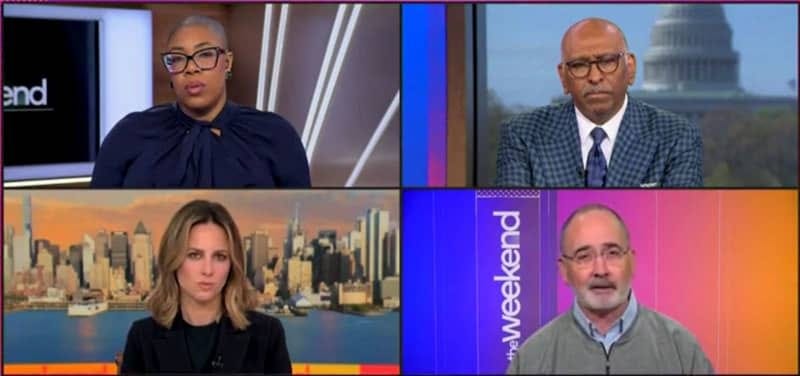The Most Important Interview on Tariffs You Haven't Seen
Blue collar realignment trumps white collar outrage
This is Shawn Fain, head of the United Autoworkers Union, speaking at the Democratic National Convention last year.
Pretty spicy stuff. There is also important context that needs to be considered: Fain was, from the perspective of the Republicans, the bad union leader. By contrast Sean O’Brien, the head of the Teamsters, became the first president of that organization in its 121 year history to speak at the GOP national convention. When election day rolled around the Teamsters refused to endorse a candidate but did release internal polling that showed an overwhelming majority of their members planned to vote for Trump.
So how is the “Trump is a scab” rhetoric holding up? Fain was recently interviewed on MSNBC for his reaction to the new tariff regime.
Check out the facial expressions of the MSNBC crew as Fain speaks. They look as sour as if they bit into what they thought was a lemon and instead got a mouthful full of shit. Two critical takeaways1:
Fain stresses multiple times throughout the interview that the union is working with the administration on tariff policy, pointing specifically to an exemption for auto parts that is designed to keep the factories running and union members employed.
In Fain’s words: “We’re not going to just vote for someone or support someone because of what letters are in front of their name. Those days are over. We expect people to deliver for working-class people.” Does that sound familiar?
Tariffs have been a union priority for decades. During the MSNBC interview Fain holds up a copy of H. Ross Perot’s “Save Your Job, Save Our Country: Why NAFTA Must Be Stopped” and calls the late CEO and third party presidential candidate “a prophet”. But the unions have had precious little success in getting either party to pay attention to that agenda—until now. Demographic realignment is what propelled Trump to the head of the Republican party as blue collar workers migrated out of the Democratic Party and into the GOP. It’s only fitting that Trump champion their priorities.
What’s more important is what impact union support for Trump will have on the country going forwards. As a reminder Biden could have reversed Trump’s tariffs after taking office in 2020. Instead he let them stand. The TPP was Obama’s great free trade project. Biden did not attempt to resurrect it after Trump killed it. He couldn’t afford to reverse either set of measures because the Democrats have been hemorrhaging blue collar workers. As the 2024 election made clear those workers will be a critical component of any winning electoral coalition.
For that reason even if a Democrat were to win in 2028 there is no guarantee that he or she would reverse Trump’s tariff regime. In fact I suspect that the opposite will hold true and that import taxes will be viewed as an acid test for potential candidates in terms of acceptability for blue collar workers2. Domestic political considerations and a new political reality will mean that tariffs, and the protectionism they enable, are here to stay.
If you are interested in the economic/manufacturing aspects of the discussion Fain makes an interesting third point, which is that US automotive manufacturing is currently operating under capacity. New production wouldn’t necessarily require new factories.
Tariffs will undoubtedly raise costs on some goods. Will that be enough to persuade unions and their members to chart a different course? I doubt it. Again, tariffs have been a goal of those organizations for decades. They are too heavily invested to cut bait regardless of what the impact is on the wider economy.



